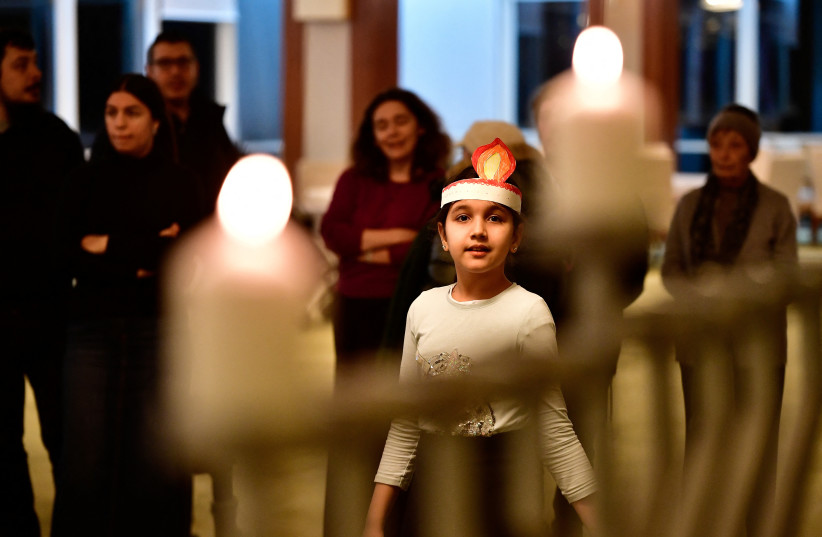As individuals, families and the Jewish world comes together to celebrate Hanukkah this week, adding light amid the dark days of winter, I was struck by an interaction I had. As I was walking to work on the streets of New York City (NYC), a little boy fell off his scooter. He was being carefully followed by his mom but it was on him to get up and keep going. He was about eight meters in front of me, coming in my direction.
Observing the scene and knowing how hard it is to start, stop and then start again on a scooter, I simply moved out of the way for the little boy and his mother to pass me on the narrow sidewalk. As they passed by, the mother turned to me and simply said, “Sorry.” My reflexive response was “No problem,” because of course, it was not a problem to move out of the way and pause briefly on my way to my synagogue.
What did she apologize for?
But as the mother and the son passed me, I realized I was saddened that she felt the need to apologize. For what was she apologizing? Briefly, inconveniencing my walk to work by a maximum of five seconds? How sad that she felt the need to say, “I am sorry.” She could have said, “Excuse me,” which would have been just as polite but also unnecessary. I realized many of us, especially women, are conditioned to apologize when we have, in fact, not done anything wrong.
In Judaism, the ability to ask for forgiveness and to grant forgiveness is a noble value. In fact, much of our High Holy Days liturgy focuses on this notion of teshuva: looking deeply at our behaviors, realizing when we were wrong and helping others succeed. This is both a theology and a philosophy I certainly ascribe to - no one should be too big to say, “I am sorry.”
And yet, how do we also realize we don’t always need to diminish ourselves in order to elevate someone else? How can we, as a society, realize that not everything needs to be a zero-sum game but, in fact, the idea that a “rising tide lifts all ships” is not only a necessary but helpful construct, considering the world around us?

This brings me back to our celebration of Hanukkah. Each night, we add an additional light with the help of the shamash, the singular candle whose role it is to help light the additional candles. When we strike a match, two things can happen: Either we increase light or that flame is used to burn things down around us.
Here is my hope. That we realize that when we light the shamash and then use the shamash to light the others, we realize that all we see is an increase in light, not the diminishment from the original shamash.
Nothing needs to disappear in order for us to be elevated. So on this holiday, we can find ways to use the fires inside us for good, to light the flames within ourselves and others, to stand proud of who we are and what we represent, and to lift up and light the way for those who need our support.
The writer is the rabbi of Sutton Place Synagogue in NYC.
